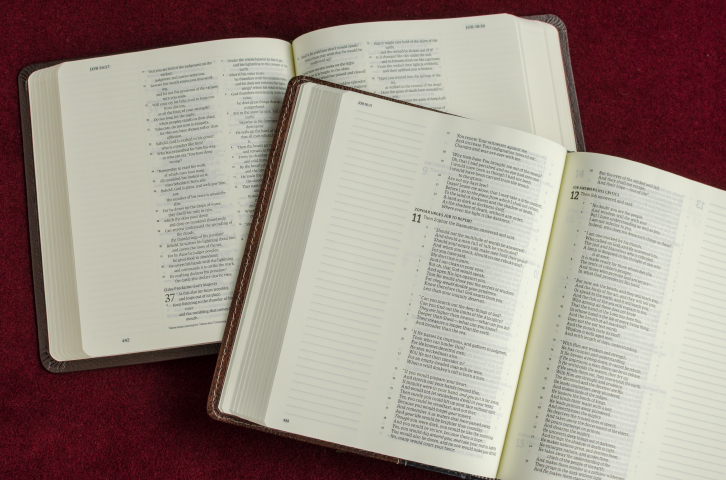Blog
“Chapter Summaries, Job 11-15”
Categories: Bulletin Articles

Job 11 marks the first time that Zophar the Naamathite speaks up. He is the most sarcastic of Job’s friends so far. He begins by expressing his contempt for Job’s “babble” and his hope that God would show up to set Job straight. He then caustically questions the limits of Job’s understanding of God. Who does Job think he is, that he can call God to account? Finally, Zophar returns to a familiar theme. All of Job’s problems are the result of his sin. If he acknowledges his sin, his problems will disappear and his life will be good again.
Job 12 is the beginning of Job’s equally sarcastic reply to Zophar. He resents Zophar’s mockery of him, particularly when Zophar thinks that he himself is sooo wise. However, Zophar has overlooked the fact that the wicked are prospering while righteous Job is suffering.
Next, Job points out that his suffering must be the result of God’s action. All created things reveal the power of the Creator. In fact, God is omnipotent. Nobody can control or restrain Him. Even the most prominent and powerful people cannot stand against His will.
Job 13 continues Job’s dissection of Zophar’s claims. Job wants a hearing before God, but in insisting that Job has no right to such a hearing, his friends are misrepresenting God. They’re being unfair to Job, and God will punish them for it.
After this, Job directly addresses God again. He says that he will continue to hope in God even if God kills him. He knows that he is righteous, so he has the right to come before God. From God, Job wants to learn two things. First, what has Job done wrong? Second, why does God hate him and persecute him so much?
Job 14 is the conclusion of Job’s rebuttal. He begins by describing the transitory nature of man, who is not eternal because God has chosen that he should not be eternal. A tree that is cut down may sprout from the stump, but man, once dead, stays dead. What Job would really like, if God is this angry at him, is for God to kill him now and resurrect him once God’s wrath is past. However, Job knows that this is a vain hope. Instead, he is going to have to continue in his suffering.
Job 15 contains the next speech of Eliphaz. He says that Job is being a windbag, hindering faith in God, and revealing his own sin with every word. Like Zophar, he demands to know who Job thinks he is, that he has the right to question the justice of God and the understanding of his friends, who apparently are much older than he is. Why is Job so angry when all people are inevitably wicked? Eliphaz then spends the remainder of the chapter elaborating on the fate of the wicked. They oppose themselves to God, so they can only receive evil and not good.





